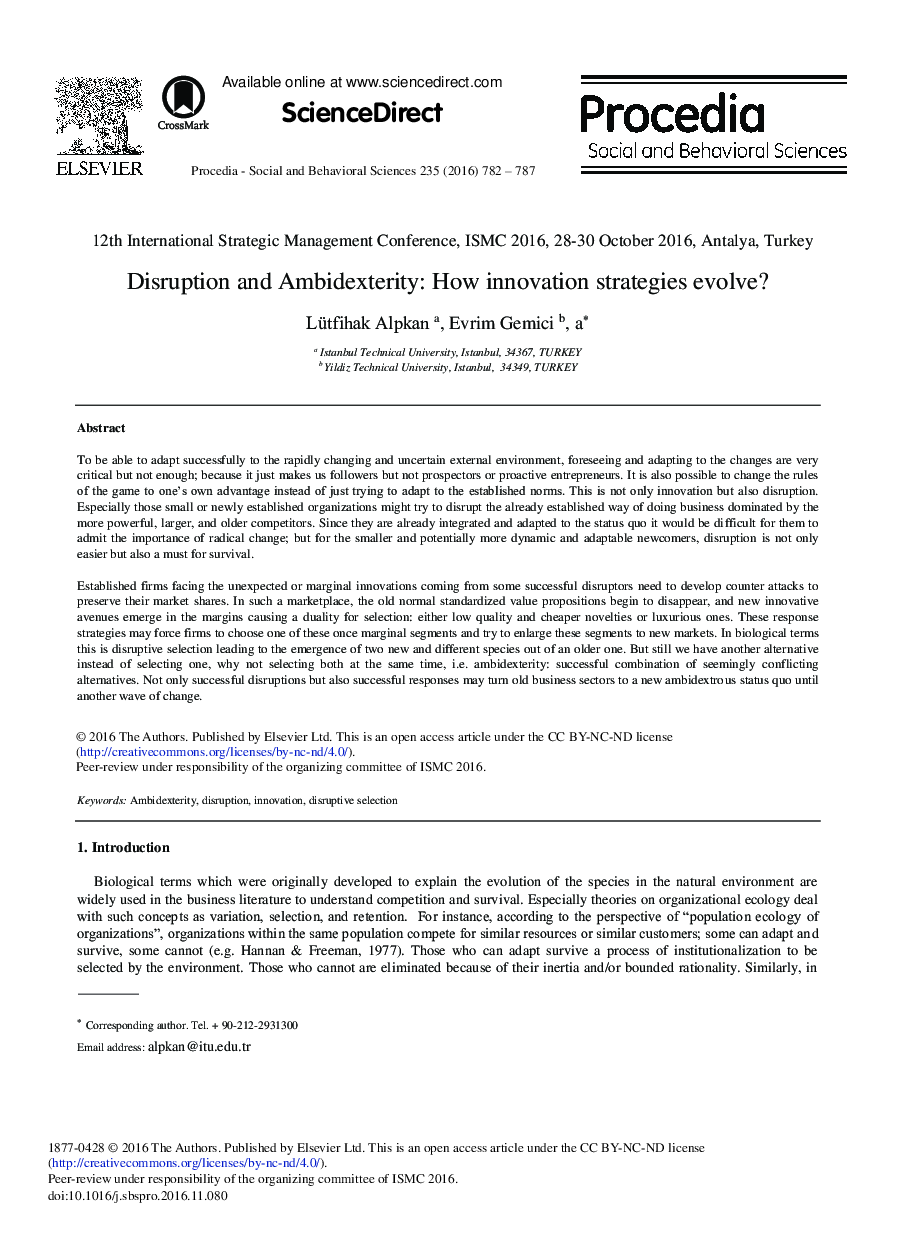| Article ID | Journal | Published Year | Pages | File Type |
|---|---|---|---|---|
| 5126111 | Procedia - Social and Behavioral Sciences | 2016 | 6 Pages |
To be able to adapt successfully to the rapidly changing and uncertain external environment, foreseeing and adapting to the changes are very critical but not enough; because it just makes us followers but not prospectors or proactive entrepreneurs. It is also possible to change the rules of the game to one's own advantage instead of just trying to adapt to the established norms. This is not only innovation but also disruption. Especially those small or newly established organizations might try to disrupt the already established way of doing business dominated by the more powerful, larger, and older competitors. Since they are already integrated and adapted to the status quo it would be difficult for them to admit the importance of radical change; but for the smaller and potentially more dynamic and adaptable newcomers, disruption is not only easier but also a must for survival.Established firms facing the unexpected or marginal innovations coming from some successful disruptors need to develop counter attacks to preserve their market shares. In such a marketplace, the old normal standardized value propositions begin to disappear, and new innovative avenues emerge in the margins causing a duality for selection: either low quality and cheaper novelties or luxurious ones. These response strategies may force firms to choose one of these once marginal segments and try to enlarge these segments to new markets. In biological terms this is disruptive selection leading to the emergence of two new and different species out of an older one. But still we have another alternative instead of selecting one, why not selecting both at the same time, i.e. ambidexterity: successful combination of seemingly conflicting alternatives. Not only successful disruptions but also successful responses may turn old business sectors to a new ambidextrous status quo until another wave of change.
